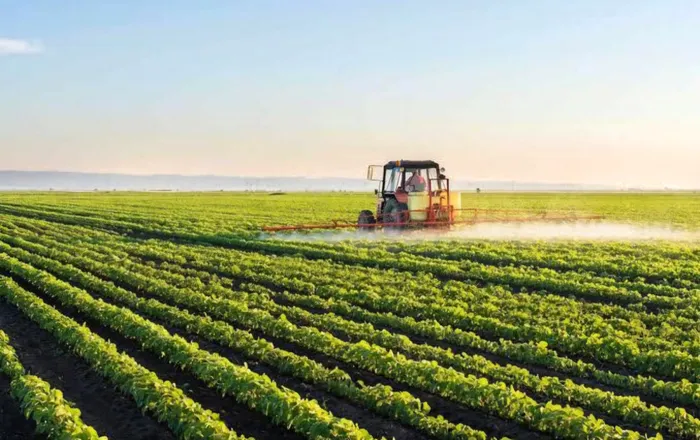Farmer brain drain could be worse than export loss for SA agriculture

Financial and non-financial incentives must be upscaled to all farmers, especially the developing black farmers, to ensure farmers are committed and not persuaded by short-term political promises in the foreign countries, says the author.
Image: File.
While excluding South Africa from the African Growth and Opportunity Act (Agoa) would have dire consequences, the emigration of real Afrikaner farmers would be even more damaging to the agricultural sector and the rural economy. Since the departure of 49 white people, who are supposedly farmers, seeking refuge in the US, the country and the agricultural sector have been concerned with the potential Afrikaners exodus to the US.
Interestingly, the departure of the 49 self-designated refugees to the US coincided with the NAMPO period, the biggest agricultural show in South Africa. For the past 57 years, NAMPO draws attention of farmers, traders, bankers, technocrats, and other service providers to gather in the Bothaville town and celebrate the grain harvest, appreciate new technologies and agricultural equipment, and welcome new research.
The 2025 NAMPO event was particularly unique as it attracted the attention of top public figures and become a diplomatic channel to communicate a message to international communities. President Ramaphosa and Deputy President Mashatile visited the NAMPO event and received a warm and jubilant welcome from true farmers that affirmed their commitment to the country and their devotion to farming. Other prominent public leaders that visited this year’s NAMPO event were Minister John Steenhuisen and the Deputy Speaker of the National Assembly, Dr Lotriet.
The common message emanating from these visits was that there is neither ethnic cleansing nor Afrikaner extermination in the country. Essentially, they dispel the US decision to grant special refugee status to white Afrikaners on the basis of imaginary genocides in South Africa.
How Important Is US and Afrikaners to SA Agriculture?
Deducing from the messages of farmers and prominent public and private leaders who attended the NAMPO week, there is a solid consensus that farming communities and South Africans, as a whole, are united behind their rainbow nation flag and are opposed to the deluded decision by the Potus.
While this may breed confidence and resilience that South Africans are well known for across the globe, it is also important to not lose sight of domestic structural and systematic pitfalls that fuel divisional views that subsequently taint the image of the country in the world. First, is the need to review the current agricultural growth strategy that depends on global demand and innovations while negating the need to build local capabilities on technology and research.\
Agoa is important
Agoa is one of the important trade agreements that enable South African farmers to produce and export products like fruits, nuts, wine, fish, and prepared foods. Without a doubt, access to the US market has been one of the critical growth factors for South African agriculture. The US accounted for 4% of South Africa’s agricultural exports in 2024, suggesting it is not the largest destination market for farmers. However, looking at only trade data could be deceiving because the US’s influence on South African agriculture goes beyond trade relations.
When the US enacted Agoa in 2000, it aimed to strengthen trade, economic and political co-operation with African states. It is not a coincidence that the biggest companies providing seeds, agrochemicals, and technical services to South African farmers either originate in the US or at least have strong ties with US investors. This illustrates the interconnectedness and high dependency of South Africa’s agriculture and food system on the global economy. While thinking global is important but acting local is vital to build resilience, sustainability and inclusivity.
Second, it is the lagging development and transformation in the agricultural sector, which at times causes conflicts and division amongst farmers. On February 18, 2025, Minister Steenhuisen painted a concerning picture where he outlined that 90% of agricultural output is from white farmers.
Slow transformation
Wandile Sihlobo and Johann Kirsten in their book titled, “The Uncomfortable Truth About South Africa’s Agriculture” affirmed these figures and further highlighted the mushrooming divisions amongst farmer organisations. The slow transformation pace tends to portray white farmers, mainly Afrikaners, as the barriers to commercial agriculture which raises frustrations amongst other population groups which are yet to enjoy the full dividends of democracy. Behind these challenges are limited government support to farmers and decaying off-farm infrastructure and stringent market standards that proportionately disadvantaged black farmers.
To resolve these challenges, government and private sector must put their hands on the deck to emulate the South African spirit of unity that was radiating in this year’s NAMPO. This means the government must upscale its Comprehensive Agricultural Support Programme and the land reform. Private sector initiatives such as Metropolitan Collective Shapers, Karan Beef Emerging Academy and HortFin by Fruit South Africa, amongst others, must be promoted and encouraged to expand to all provinces in the country.
These private and public programmes will encourage all farmers to work together to build a sustainable and growing agricultural sector. Through these collaborations, real Afrikaner farmers who may be considering emigrating to the US, would be able to realise that they will be foregoing centuries of hard work and investment in agriculture, thus making them to stay.
Financial and non-financial incentives must be upscaled to all farmers, especially the developing black farmers, to ensure farmers are committed and not persuaded by short-term political promises in the foreign countries. Agriculture will strive through partnerships.

Sifiso Ntombela is an agricultural economist.
Image: Supplied
Dr Sifiso Ntombela is the President of the Agricultural Economics Association of South Africa. He served as the Special Adviser to the former minister Thoko Didiza in the Department of Agriculture, land Reform and Rural Development. Contact details: sifiso@igrodeals.co.za
BUSINESS REPORT